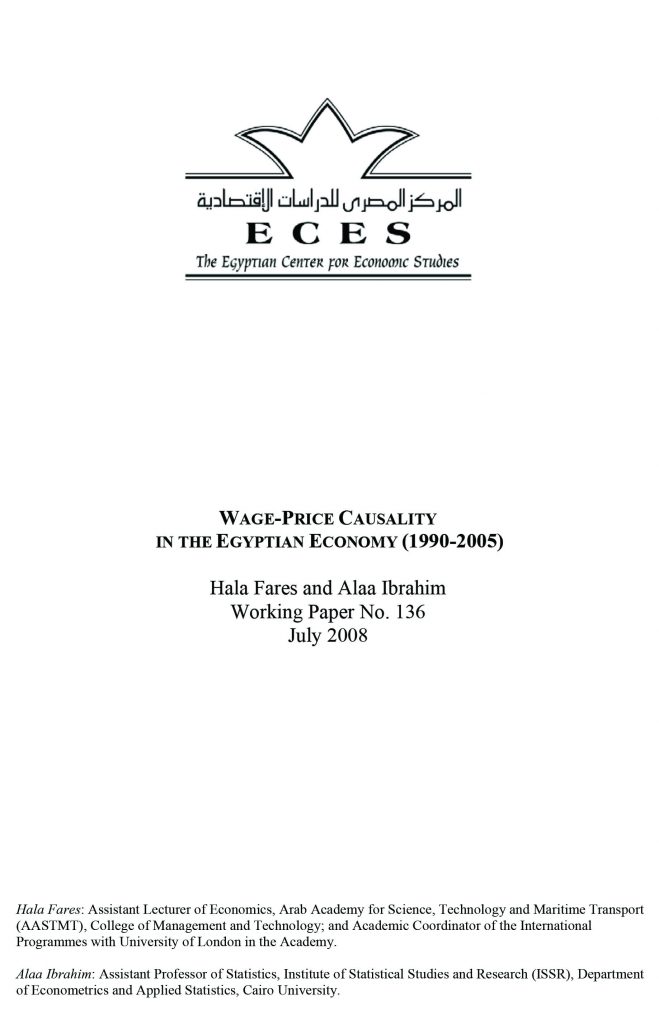Abstract:
This study uses a Granger causality test to examine causality between wage growth and price inflation in Egypt. Two indicators are used as measures of inflation; the consumer price index (CPI) and the wholesale price index (WPI). Wages are classified into public and private sectors wages. The study finds that changes in public sector wages are, in general, independent from changes in prices, as wages in this sector are not determined by market forces. Growth in private sector wages causes price inflation, but wage growth in this sector is a function of lagged changes in prices rather than expected inflation rates. As inflation is caused by several other factors than wages, the delay in the response of wages to inflation runs the danger of declining standards of living and pulling more and more people down to poverty. Strengthening trade unions and collective bargaining could play a very important role in adjusting wages to current inflation. A law that carefully adopts and regulates the practices of collective bargaining and organizes a legal framework that guarantees workers’ rights is essential. In addition, there is a need for imposing a minimum wage act to ensure a minimum living standard for workers, and maintain efficiency in the workplace. As these actions may exert some inflationary pressures on prices, a wise monetary policy is needed to contain inflation without impeding economic growth.

